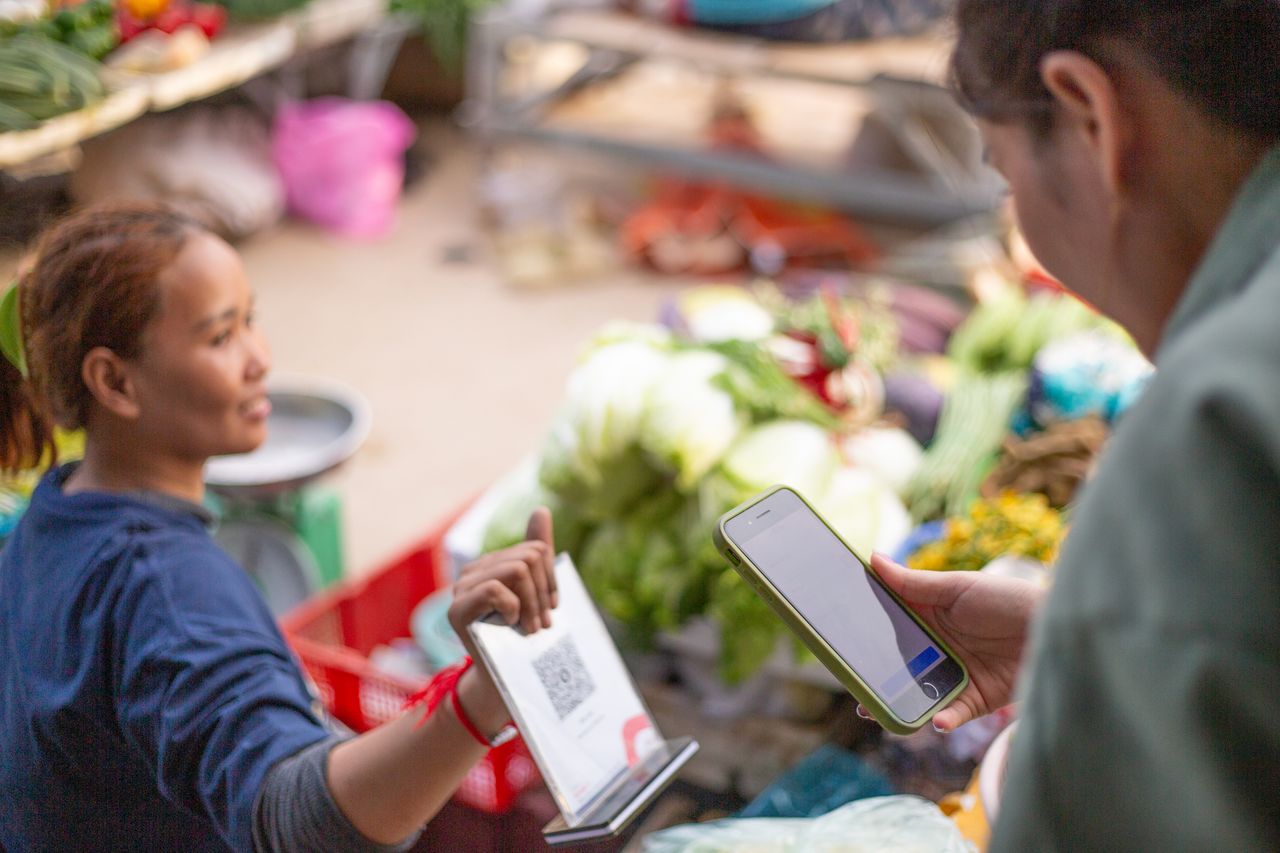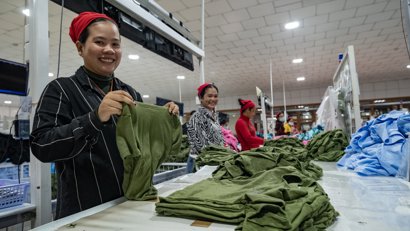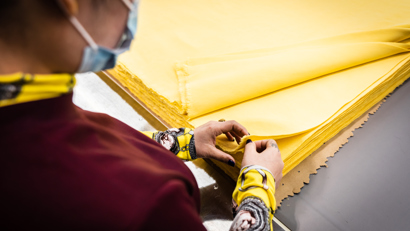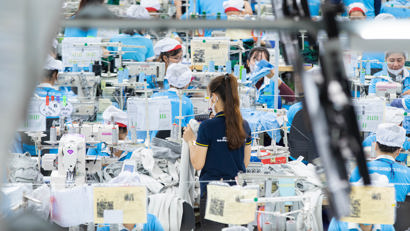
"Digitalizing payroll offers benefits both for our workers and for employers. It's safe, quick, and efficient. Workers don't have to stand in line on payday, and they can better manage their money," explains Sophal Soeung, head of administration and human resources at Marvel Garment Co Ltd in Cambodia, in December 2024. This echoes the findings outlined in the World Bank’s Global Findex data published in July 2025.
This confidence is in sharp contrast with the attitude of most garment, footwear and home textiles factories when RISE and Mastercard Center for Inclusive Growth started working on wage digitalization and workers’ financial health in Cambodia. Back then, convincing factories to pay their workers digitally felt like an uphill battle as many in the sector questioned whether digital wage payments were worth the investment. Workers had always been paid in cash and many employers saw little reason to change a system they had always known.
Understanding the business value of private sector wage digitalization
Yet RISE had evidence that paying wages in cash was both costly and inefficient. In 2020, working alongside Leora Klapper (Global Findex Founder), IFC, ILO/Better Factories Cambodia, and Microfinance Opportunities, our research proved that cash wage payments are time-consuming and more expensive than digital alternatives. In Cambodia, where workers are paid twice monthly, payroll staff and workers regularly had to leave the production floor to collect and distribute wages. Even after accounting for digitization costs like setup expenses and transaction fees, we demonstrated that digital wage payments can save large factories at least $1,700 per month.
For long-term RISE buyer member The Children’s Place, the savings spoke for themselves: “It is important for us to have partners like RISE and Mastercard to work with on wage digitalization, because we can bring factories to the table and help [answer the question of] ‘why digitalization matters’. But we don’t understand what the best financial services are and how to connect those services to the workers, and how to make sure there’s a feedback loop. That’s the power of our collaboration.”
The transformation
Today, paying wages digitally has become standard practice for many factories that are writing digitalization into their policies, supported by brands that expect it from suppliers as part of their compliance requirements. The Global Findex data tells the story of this transformation. In low- and middle-income economies, 45 % of private sector wages are now deposited into accounts, evidence of the transforming landscape when it comes to financial inclusion.
In Cambodia, RISE’s work with global buyers, suppliers, the financial industry and other key stakeholders like our partner Mastercard, GIZ, TAFTAC and Better Factories Cambodia contributed to this uptake. In 2014, only 10 % of private sector wages were paid into accounts.
Among Better Factories Cambodia (BFC) members in 2018, approximately 22 % paid wages into accounts rather than in cash. By 2024, this figure had soared to 72 %, covering 84 % of the workforce.
This means millions of workers globally have gained access to formal financial services for the first time. They can save money safely and make decisions about their futures.
The real impact on workers and business
After receiving tailored financial training from RISE, 96 % of garment and footwear workers in Cambodia now prefer digital payments over cash, up from 62 %. We’ve documented significant changes in how workers manage their money, following wage digitization and participation in RISE Financial Health programs:
- A 54 percentage point increase of workers (men and women) using mobile money accounts for merchant payments, sending remittances, topping up airtime and paying bills,
- A 38 percentage point increase of women garment workers saving regularly for expected expenses (such as medical bills, household items), emergencies, and to buy land
- A 25 percentage point increase of women reporting confidence to manage financial emergencies.
As garment worker Khanara puts it: "When my family needs money urgently, I can transfer it quickly. I want to save money through the app so that when I am older, I can buy a house or set up my own business."
Building resilience for future challenges
This comes at a time when emerging challenges like AI, tariffs and climate change are threatening workers’ livelihood and financial health. The Global Findex found that 26 % of adults (15+) in Cambodia have experienced a severe weather event, with 19 % reporting lost income and 17 % reporting lost property as a result. Rising food prices, lost earnings, and mounting healthcare costs deplete limited savings or increase indebtedness.
What’s next? The wage digitalization scale-up provides a critical foundation for longer-term financial resilience. Continued collaboration between the garment and footwear industry, the financial services industry and the public sector to support low-income workers to expand their financial access to insurance, responsible credit and investment products. This enables workers and their families to continue on the path towards financial resilience, leading to stronger local economies. This is a transformation we as RISE are looking forward to being part of.
- Financial Health
- Cambodia
 Christine Svarer
Christine Svarer
 Ella Moffat
Ella Moffat



